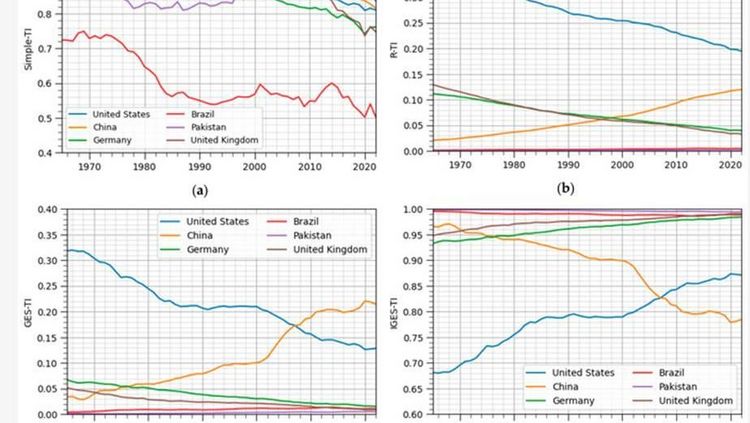The research by Jihan Ahmad As-sya’bani, Muhammad Zubair Abbas, Alzobaer Alshae and Dr. Herena Torio breaks down the complex roles of different countries from historical emissions to financial capacity and reveals who truly carries the burden of the climate crisis.
The increasing recognition of historical emissions and uneven financial capacities among developed and developing nations has highlighted the need to look for equity and fairness in global climate action. This study aims to present a revised method that enables mapping the current state of fairness in the global energy transition, addressing both the contribution to the climate crisis and the burden that different countries face in coping with the climate disasters resulting from it. For this purpose, we revise various methods and indices used to measure the progress of energy transition efforts, as well as existing methodologies to appraise the responsibility for climate change and the resulting financial capacity. We propose changes to the existing methods to allow for a clearer analysis of the fairness of the global energy transition. An exemplary use of the proposed modified methodology is applied to six countries that represent developing and developed countries using publicly available data from renowned sources such as IRENA, EM-DAT, and the World Bank, showing the applicability of the method. The main trends in the results highlight the added value of the proposed method. The progress in the energy transition is evaluated in terms of fairness as a transition index by taking into account historical responsibility and financial capacity. Damage from climate-induced disasters and contribution towards climate financing are added as contextual considerations. The country’s historical emissions, GDP, NDC, financial costs of climate-induced disaster, and financing from the Green Climate Fund are used as the basis for the analysis. The findings underscore the differences in energy transition achievement, as well as the differences in pledged and deposited funds among various types of countries. The results demonstrate a disproportionate burden experienced by lower-income nations and depict the ongoing challenges in translating principles of “common but differentiated responsibilities” into concrete outcomes. This study provides an open-source and data-driven perspective that highlights the need for change in global policy discourse and also advocates for the creation of more nuanced, just, and effective approaches to accelerate the clean energy transition worldwide.
If you like to read more; https://www.mdpi.com/2071-1050/17/16/7470


